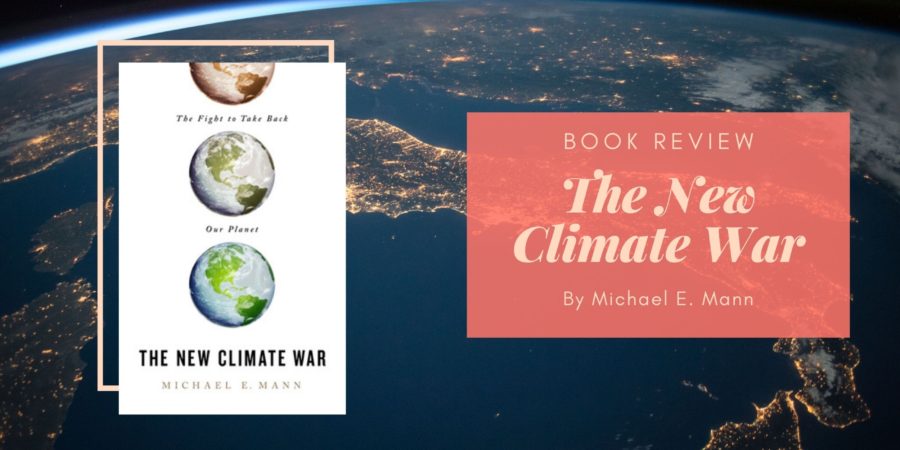So I don’t think I’ll finish my entire summer reading list before my course starts, but I’d have finish about half of it now that I’ve also read The New Climate War. In The New Climate War, climatologist and geophysicist Michael E. Mann draws on his years of experience in the field to talk about the ways that we are impeding meaningful action that could help mitigate the effects of the damage we’ve done to the environment.
Mann clearly and persuasively explains the ways climate inactivists persuade people not to act, or to choose non-viable solutions. As I understand it, the arguments used are:
- Pushing responsibility for the environment onto the individual – while we need to take charge of our personal decisions and their environmental impact, a lot of corporations are using this as an excuse not to take any action at all.
- Campaigns against carbon taxes and other proposals that would tax environmentally unfriendly sources of energy
- Solutions that may or may not just migitate the problem but help ignore/reduce the push to better alternatives (this is especially for measures that mitigate the carbon emissions from coal)
- Either minimising the situation so that you don’t feel the need to take action, or harping on the consequences so much that you feel like any action taken is going to be useless
For the most part, The New Climate War is focused on the US political system (where Mann makes it clear that both political parties aren’t perfect), while also looking at Australia and the UK. Apart from Germany as a case study – which was brought up in a debate in the US by politicians – I didn’t really see any discussions of Europe or Asia, especially Southeast Asia. It’s a bit of a pity, because with greenwashing around, it can be hard to see where Singapore stands or what type of issues we face. As far as I could find, as recently as 2018, Singaporeans seem prone to the doomism message but the government may be taking action? I do think that Singapore’s small size makes it easy for us to assume that our actions won’t have an impact.
Another thing I would have liked to read about, though it may be slightly out of the scope of this book, would be the environmental impacts of new technologies like NFTs and blockchain. Mann does mention that technology can help us use energy more efficiently and to use clean sources of energy (for example, solar energy), so I was wondering about these two things and it’s true impact the environment. From what I understand, blockchain (especially bitcoin) uses a lot of energy in the mining and I could see that having a huge impact on the environment. So if anyone has recommendations on this particular topic, please send them my way.
While reading The New Climate War, I was reminded of Do You Believe in Magic by Paul A. Offit (Goodreads Review). Offit’s book looks at the arguments for and against alternative medicine, and The New Climate War is similar in in the sense that it debunks a lot of myths about environmental efforts. But perhaps a more on-topic book that you could read after this would be Post Growth by Tim Jackson, especially the chapter on The Art of Power. While the books aren’t directly related, I did get the sense that one reason why inactivist messaging works is because many people just assume that we have to carry on business as normal (I’m also reminded of this New Yorker comic). Post-Growth looks at the way we could switch to a new way of doing business, and I think the ideas in Jackson’s book could be used to complement what Mann is saying here.
Featured Image: Photo from Canva

This is a book I really want to pick up now! And I’m “lucky” to live in the UK so we get quite a bit of discussion about us in literature. I also agree that there’s a definite lack in discussion about other countries than the “main” few
I think you’d probably get even more out from this book, since the UK is mentioned a bit (though not as much as the US)!